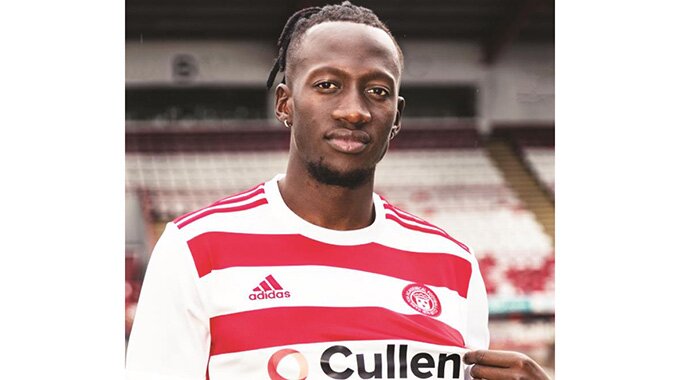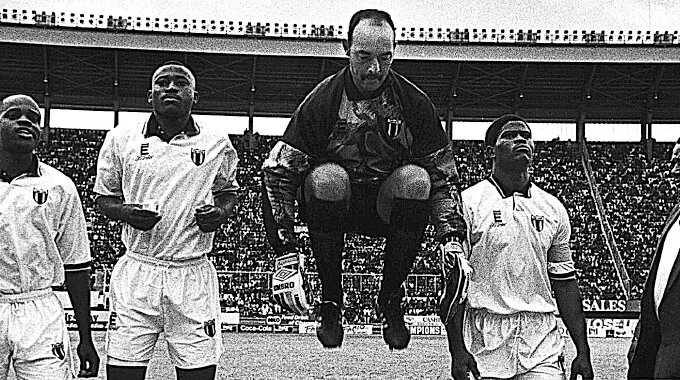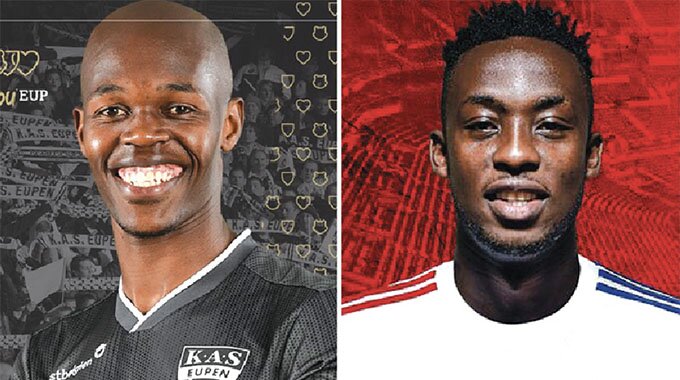Collin Matiza Sports Editor
WHEN he left the country for Dubai 10 years ago, as an ambitious 22-year-old footballer, Tawanda Nhunhama had a dream.
He wanted to become a fully-fledged professional player.
His inspiration came from the legendary Peter Ndlovu and Benjani Mwaruwaru.
In the United Arab Emirates, Nhunhama, a product of the famed Agatha Sheneti Academy in Harare, was first signed by Dubai Vets.
He played for them for two seasons from 2011- 2012 and in 2013 he almost signed for the biggest club in that country, Al Ahli, when it was under the guidance of Italian football legend Fabio Cannavaro.
Advertisement
But the deal fell through because the attacking midfielder had no international caps with the Warriors.
He ended up being signed by Dubai FC and stayed there for four years from 2013-2017 before he decided to hang up his boots.
His uncle, Stanford Nhunhama, played for CAPS United in the early 1980s alongside the late Joel “Jubilee” Shambo, Stanley “Sinyo” Ndunduma (late), Shacky “Mr Goals” Tauro (late), Friday “Breakdown” Phiri (late), Dickson Ngwanya (late), Salad Twaliki (late), Stanford “Stix” M’tizwa, William Chikauro and Solomon Kaseke.
His other uncle, Owen Nhunhama, played for the now-defunct Premiership side Rufaro Rovers.
His father, Sydney, played for former ZIFA Northern Region Division One side ProNutro alongside Anthony Kambani, Anyway Chamwalira (late), Sam Musiya, Big George Nyamulani (late), Leon “Tingo” Linyama.
Interestingly, Tawanda’s other uncle is the late, great Obediah “Wasu” Sarupinda, one of the founder members of Dynamos.
Tawanda, who grew up in Mbare playing football at Agatha Sheneti Academy and then at Harare United under coaches Mike “Mickey Dread” Madzivanyika, the late Shame Nemasango, Sylvester Hukama and Sammy Mavhenyengwa, was determined to play in Europe.
But it just wasn’t to be.
When he quit football Tawanda, also known as Fantafire, started working full-time for Etihad Airways and, at the same time, deejaying on a part-time basis.
“When I got injured, I struggled to get a new contract (in the UAE) and since I’m now a family man, I had to put something on the table for my family,’’ he said from Dubai.
Advertisement
“I decided to find a job and I’m now working in the aviation industry here in Dubai and, as for deejaying, I’m doing it on a part-time basis, just as a hobby.
“I play reggae and dancehall music but I’m flexible, depending on the event, I can play any music.
“I’m now 32-years-old and, at this age, I realised that if I continue pursuing my football career, I was no longer at a stage where I can get a lucrative contract.
“I’m still playing football but not at a professional level. I have created a platform called ‘263 Diaspora Djs live on the mix’ where I’m trying to network Zimbabwean DJs from all over the world.
“But I’m not only looking at DJs but different crafts such as chefs, make-up artists, poets etc. The group has more than 6 000 people who have joined and it’s (about) changing lives and bringing raw talent into the limelight.
“I’m the one who is behind the Zim Entertainment (project) . . . I’ve managed to bring three quarters of Zimbabwean artistes who have toured Dubai.
“Deejaying has become a profession that people can do on a full-time basis and be able to earn a decent living from.
“I want to shape our community to take deejays more seriously because even though they are playing songs by artistes, they have to do so skilfully, creatively and invest a lot of effort into promoting the music they play.
“I have plans to open a DJ school in Zimbabwe, which will offer various courses from beginner level up to advanced level.’’
With the help of his wife, a manager representing numerous music publishing majors in the MENA region, Tawanda also said he plans to educate Zimbabwean artistes about music rights.
Advertisement
“Our music industry is filled with really talented artistes, but a lot of them are limited to Zimbabwean audience only.
“One way in which we can change this is by realising that we need each other to grow and it is my intention to create a platform that will broaden the Zimbabwean music scene.
“I have already started embarking on the journey myself by investing in my knowledge by attending one of the reputable DJ schools here in Dubai.” It has been quite an interesting journey — from playing football in the dusty streets of Mbare to the DJ’s box in the UAE.
– HERALD








